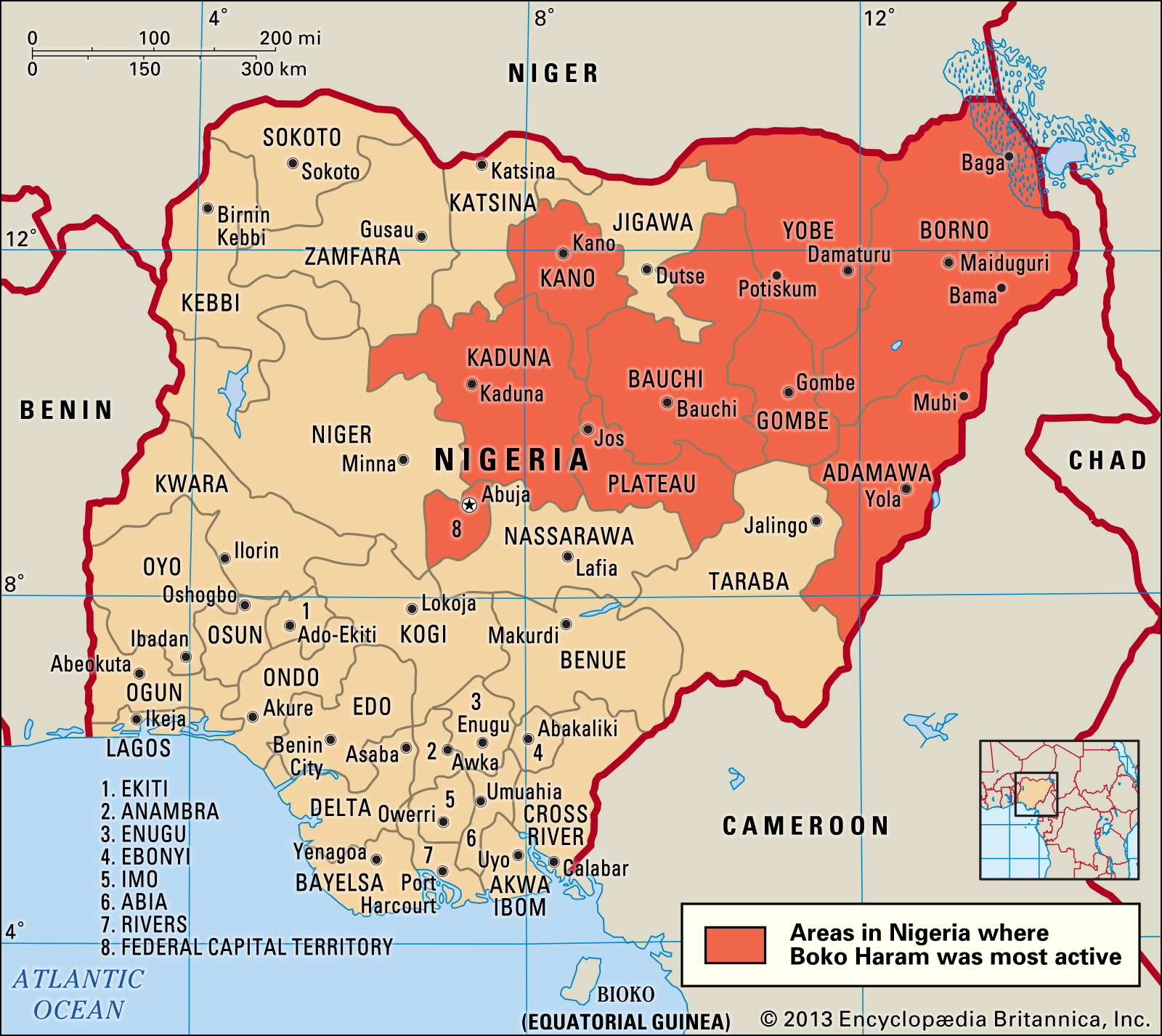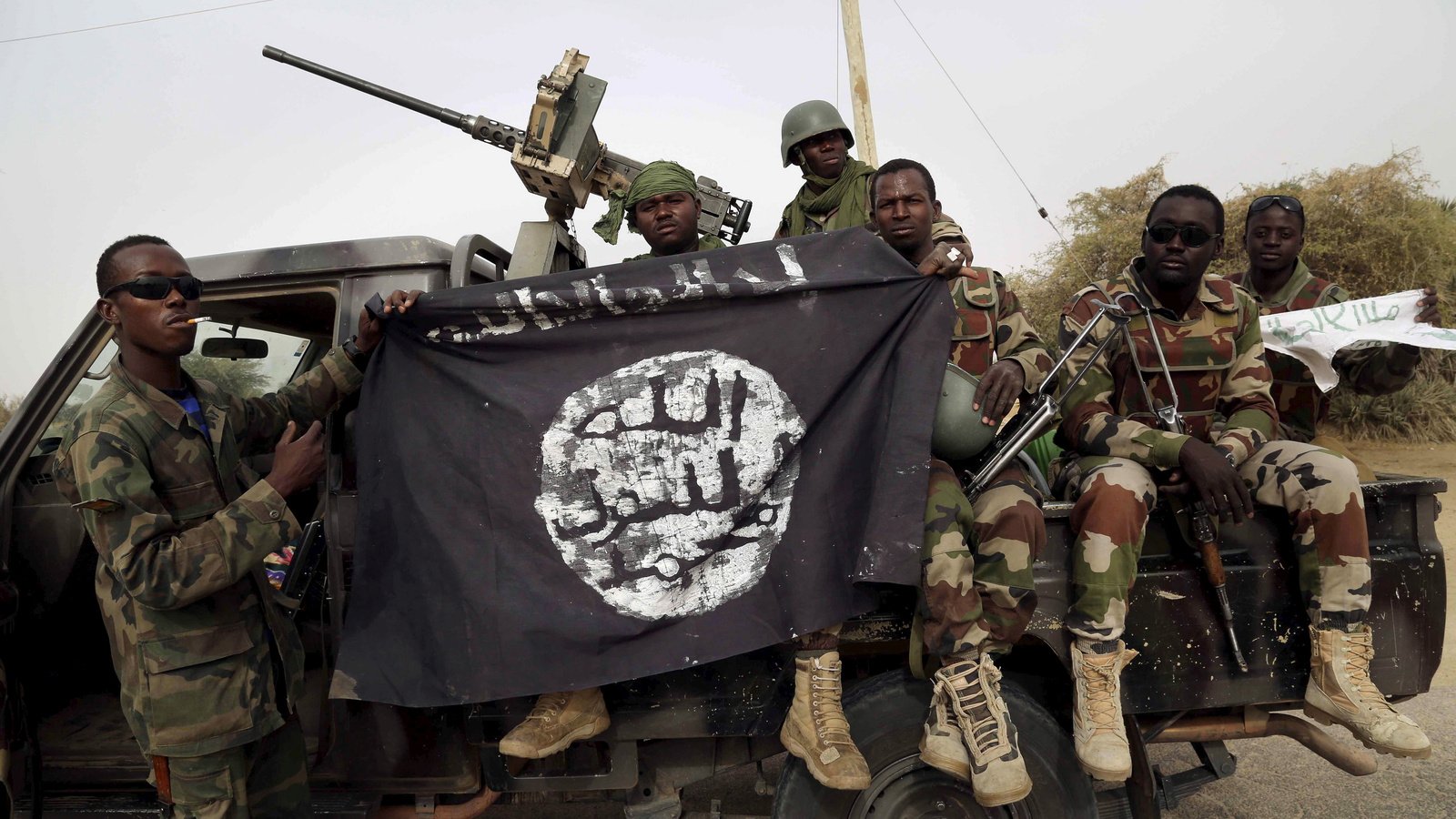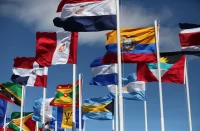West Africa’s Nigeria became involved in escalating violence since July 2009 when shadowy Islamic sect Boko Haram started with series of terrorist violence followed by the Government’s counter-terrorism military actions. In Nigeria, there were between the years 1999 and 2008 some 28 conflicts based on religious differences of which the most serious were the violence between Christians and Muslims in 2001−2004 and 2008.
The political phenomenon of Boko Haram is dominating during the last years policy discourses among both politicians and academics dealing with African politics but in particular with Nigeria. Many issues about this organization are unclear and contested like the exact reasons for its establishment and functioning, radicalization, the used methods of the political fight, the exact profiles of its membership, its affiliation with other terrorist groups such as Al-Qaeda in the Islamic Maghreb. Nevertheless, the majority of academicians dealing with the security issue are seeing Boko Haram as a clear symptom of the failing state of Nigeria while sociologists and anthropologists would rather attribute this organization to the poverty problems in Nigeria.
The inter-regional division of Nigeria is also very important for dealing with the phenomenon of Boko Haram. For instance, many of the researchers coming from South Nigeria are blaming the northern political structures of Nigeria for the domination of the state. Certain experts in the studies of terrorism and security are focusing their investigations on the international ties of the group and its potential threat that can be imposed on the region of West Africa. Nonetheless, the phenomenon of Boko Haram is part of the wider issues of state-building, terrorism and counter-terrorism, humanitarian problems, conflict solutions, and violence within the state borders.
Boko Haram as an organization surely represents a retreat from the project to create a functional multiethnic state which is increasingly showing its inability to perform its fundamental social role and security functions as, for instance, Boko Haram is successfully attacking Nigerian telecommunication infrastructure. In this and some similar cases, Boko Haram is copying the Taliban actions in Afghanistan demonstrating that emerging jihadist groups tend to copy tactics and strategies which have been already adopted by other terrorist groups. In investigating Boko Haram and other terrorist groups across the globe the simplistic and at the same time narrow approach usually is making a common mistake as it does not take enough into account the historical background in which religious identities are created and re-shaped. Furthermore, in the majority of similar cases regional, ethnic, and religious identities reinforce each other.
In the Nigerian case, the socio-economic context of Boko Haram’s phenomenon is aggravating the economic imbalance between rich South Nigeria and poor North Nigeria. Boko Haram is more and more dominating security and terrorism discussions among the specialists in African studies. The organization attracted attention and for its involvement in the cyber-warfare. However, probably the most attractive research topic concerning Boko Haram is the disability of the Nigerian authorities and state security system to adequately respond to its threat to the region of West Africa together with other regional states and/or the African Union. But the role of the USA in counter-terrorism, in this case, is as well as of extreme importance as officially Washington declared Boko Haram as a Foreign Terrorist Organization but did little to pacify it. Therefore, the opinion exists that Boko Haram is getting at least silent support by the US administration if not much more like in the case of the Islamic State (the ISIS/ISIL) in the Middle East.
Nigeria as a failed state
The Federal Republic of Nigeria is the most populated state in Africa (195,5 million people in 2018). Its history and present time are characterized by its ethnic and religious diversity. In Nigeria, there are some 350 ethnic groups (speaking 400 languages) who are dominated by four of them: the Islamic Hausa, the Fulbe, the Yoruba, and the Christian Ibo. Under the British colonial authorities since the 1880s, the Ibo ethnic group formed an educational elite in the southern part of Nigeria. The country became independent on October 1st, 1960 becoming a federal state with an adopted Constitution which was written mainly according to the British political system and the tradition of political science. However, both the Constitution and the state of Nigeria soon after getting independence have been paralyzed due to its ethnic and religious divisions. The unrest that erupted in 1966 followed the forming of the military Governments. Nigeria is since independence in 1960 struggling to define a common Nigerian national identity but still being divided into 50% Muslims, 40% Christians, and 10% of indigenous faith believers.
 The Nigerian civil war was from 1967 to 1970, when the Ibo Christians fought for independence from the Islamic North Nigeria as the state of Biafra. After the civil war, political conditions in Nigeria have been determined by military authorities and military coups. It was only a short time when the democratization process started in 1978−1983. Nigeria’s political problems, instability, and civil wars were founded on the reality that only military dictatorship was and can create the political-administrative predominance of the Hausa and Fulbe from North Nigeria over the southern peoples of Yoruba and Ibo who have been more educated and profited from their wealthy oil reserve. The so-called controlled political democracy was introduced in 1992 with two political parties to be allowed to exist and participate in political life. However, both parties have been controlled by the military Government. This system was abolished after a new military coup in November 1999 when General Abacha introduced a harsh system of repression not experienced before in Nigeria and the majority of Africa’s countries.
The Nigerian civil war was from 1967 to 1970, when the Ibo Christians fought for independence from the Islamic North Nigeria as the state of Biafra. After the civil war, political conditions in Nigeria have been determined by military authorities and military coups. It was only a short time when the democratization process started in 1978−1983. Nigeria’s political problems, instability, and civil wars were founded on the reality that only military dictatorship was and can create the political-administrative predominance of the Hausa and Fulbe from North Nigeria over the southern peoples of Yoruba and Ibo who have been more educated and profited from their wealthy oil reserve. The so-called controlled political democracy was introduced in 1992 with two political parties to be allowed to exist and participate in political life. However, both parties have been controlled by the military Government. This system was abolished after a new military coup in November 1999 when General Abacha introduced a harsh system of repression not experienced before in Nigeria and the majority of Africa’s countries.
Nigeria is one of the largest oil producers in the world which a GDP is composed of more than 90% of the oil export but the average annual income per capita is one of the lowest in the world. There are two reasons for such an obvious anomaly: huge corruption (one of the highest in the world) and mismanagement of the economy and politics. Both of these mismanagements led to the neglect of Nigeria’s industry and agriculture followed by an environmental disaster in the Ibo coastal region to be contaminated in the 1990s with an estimated 23 billion cubic meters of oil every year. Due to zero ecological standards in oil production, Nigeria is the world’s largest single producer of global warming. The political and economic problems are for a long time tolerated by the (Western) international community mainly for the reason that it is very dependent on Nigerian oil followed by the non-political and nonenvironmental approach adopted by the (Western) oil companies in Nigeria (in particular, Shell).
The continuing poverty of the Yoruba and Ibo peoples followed by the growing Islamic fundamentalism (like by Boko Haram) in North Nigeria fostered the social, cultural, economic, political, and confessional conflicts.
Boko Haram – Name & origin
This terrorist organization and religious sect became since 2009 a synonym for insecurity in Nigeria when the Government launched a crackdown on the group. The action has resulted in around 800 killed people, most of them have been the members of Boko Haram among whom and Mohammed Yusuf – the organization’s leader. Boko Haram organized its first terrorist attack in January 2010 at Borno federal state of Nigeria which resulted in four killed people. However, since that time, the organization intensified its terrorist methods like when on June 16th, 2011 they bombed the police HQ in Nigeria’s capital Abuja using the Afghan Taliban method of a suicide bomber. The next suicide bomber blew up on August 26th, 2011 the US HQ in Abuja when at least 21 people were killed. The next terrorist act done by Boko Haram was on January 20th, 2012 in Kano leaving more than 185 people dead, etc. On the other hand, Nigeria’s Government as a response intensified its military actions against the organization and succeeded to capture some of its leaders.
Nevertheless, although the issue of Boko Haram dominated the security agenda in Nigeria and part of West Africa since early 2010, in essence, we do not know so much about this organization and sect. Many things are contested about Boko Haram from the real meaning of its name to the real reason for its activity. It is as well as not even clear if the sect is really responsible for all of the terrorist acts attributed to it.
 The members of Boko Haram, in fact, prefer to be named by their Arabic name meaning in English “People Committed to the Propagation of the Prophet’s Teachings and Jihad”. The organization was founded in Muslim North-West Nigeria where the local inhabitants called them “Boko Haram” – a combination of the Hausa word “boko” (“Western education”) and the Arabic word “haram” (“forbidden” or in slang “sin”). Consequently, Boko Haram is commonly translated as “Western education is a sin” or more broadly as “Western civilization is forbidden” because what the organization’s members are opposing is Western civilization in general. The locals in North-West Nigeria are calling this sect as well as the “Taliban” even though there is no reliable evidence that Boko Haram has direct links with the Taliban of Afghanistan. Most probably, the organization even does not some specific name for itself but several names given to it by local people.
The members of Boko Haram, in fact, prefer to be named by their Arabic name meaning in English “People Committed to the Propagation of the Prophet’s Teachings and Jihad”. The organization was founded in Muslim North-West Nigeria where the local inhabitants called them “Boko Haram” – a combination of the Hausa word “boko” (“Western education”) and the Arabic word “haram” (“forbidden” or in slang “sin”). Consequently, Boko Haram is commonly translated as “Western education is a sin” or more broadly as “Western civilization is forbidden” because what the organization’s members are opposing is Western civilization in general. The locals in North-West Nigeria are calling this sect as well as the “Taliban” even though there is no reliable evidence that Boko Haram has direct links with the Taliban of Afghanistan. Most probably, the organization even does not some specific name for itself but several names given to it by local people.
The origin of the organization is as well as very contested like its name or meaning of the given name – Boko Haram. There is a belief by the locals that it was established in 2001 or 2002 by its leader Mohammed Yusuf. However, some researchers would say that the sect of Boko Haram was, actually, founded in 1995 as Sahaba. According to the same authors, the original leader of the organization was Lawan Abubakar who later have been studying at the University of Medina in Saudi Arabia. Mohammed Yusuf took leadership of the organization or sect when Lawan Abubakar went to Medina for study and immediately started to work to dramatically increase the sect’s membership (more than 500.000 members?). Every member of Boko Haram was taxed by a new leader per day and, therefore, Mohammed Yusuf became directly responsible for the rising its profit which later became the financial foundation for the sect’s military actions. There are indications that he established a religious complex that included a mosque and a school where many children studied from poor families from Nigeria and surrounding countries.
The religious identity of Boko Haram
The religious factor is the crucial issue in understanding and explaining the political phenomenon of Boko Haram like the Afghan Taliban, for instance. However, religious identity is interconnected with some other issues as ethnicity, politics, economics, violence, or migration. In general, for the sake to properly understand current religious violence in North Nigeria it has to be taken into consideration and the question in which historical, political, or economic context Boko Haram as an Islamic fundamentalist sect is operating because it is known that religious violence is incorporated in certain moments of history and structures of culture.
 The religious identity of Boko Haram is a strong Saudi Islamic Wahhabism and as such is supported by enough evidence. Historically and ideologically, the religious identity of Boko Haram goes back to the year 1802 when Uthman dan Fodio declared his personal jihad to purify Islam. He was a religious teacher and herder from the ethnic Fulani tribe. In the process of his jihad, the Sokoto caliphate was established and it exists today. In the 1980s there were several Islamic uprisings in Nigeria which represented the intentions to impose a religious ideology on a secular state of Nigeria in a very similar way in which during the last decade Boko Haram is forcing the central authorities of Nigeria in Abuja to accept the Islamic shari’a law in all 36 federal states of the country. However, the political elites of North Nigeria exploited Boko Haram’s founder and leader Mohammed Yusuf in 1999 as a cynical response to the local population’s desire to halt increasing crimes by the introduction of the shari’a law. Being used, angry Mohammed Yusuf established Boko Haram in 2001 or 2002.
The religious identity of Boko Haram is a strong Saudi Islamic Wahhabism and as such is supported by enough evidence. Historically and ideologically, the religious identity of Boko Haram goes back to the year 1802 when Uthman dan Fodio declared his personal jihad to purify Islam. He was a religious teacher and herder from the ethnic Fulani tribe. In the process of his jihad, the Sokoto caliphate was established and it exists today. In the 1980s there were several Islamic uprisings in Nigeria which represented the intentions to impose a religious ideology on a secular state of Nigeria in a very similar way in which during the last decade Boko Haram is forcing the central authorities of Nigeria in Abuja to accept the Islamic shari’a law in all 36 federal states of the country. However, the political elites of North Nigeria exploited Boko Haram’s founder and leader Mohammed Yusuf in 1999 as a cynical response to the local population’s desire to halt increasing crimes by the introduction of the shari’a law. Being used, angry Mohammed Yusuf established Boko Haram in 2001 or 2002.
The reasons for the radicalization of Boko Haram
As a matter of fact, Boko Haram acted more or less peacefully until 2009. It means that the radicalization of this sect started in 2009. The reason is a reaction to Government’s attempt to crackdown this organization in that year in which around some 900 people died. During this governmental security operation, the leader of Boko Haram, Mohammed Yusuf was killed followed by Boko Haram’s reprisal by carrying out its first terrorist act in Borno in January 2010 which resulted in the killing of four people. In January 2012, a former deputy leader of the sect, Abubakar Shekau, took the leadership of Boko Haram.
Nevertheless, the mystery is still about the real reason for the Government’s crackdown on the sect in 2009? In fact, there are three answers to this question:
- The Government of Nigeria became informed that Boko Haram is arming itself and, therefore, struck first in order to prevent terrorist or other military activities of the sect.
- Several motorbike members of the sect have been shot dead on June 11th, 2009 as a result of quarreling with police over the bikers’ refusal to wear crash helmets in Maiduguri. According to this version, the leader of Boko Haram vowed to revenge the death of his members which he probably did several days after this incident which led to the arresting of several sect’s members by police. In fact, therefore, coordinated attacks of the police stations in North Nigeria since mid-2009 were Boko Haram’s reprisal attacks for the police arrest and humiliation of their members.
- Boko Haram became radicalized because some politicians in the federal state of Bornu, who have been using the sect as thugs, became frightened when they suddenly became too powerful for them and, therefore, could force the Government to deal with them. It is known, for instance, that ex-Governor of Bornu state Ali Modu Sheriff was in connection with Boko Haram regardless that he denied this fact. Boko Haram as well as supported some local politicians in the 2011 electoral campaign. Senator Ndume, who won the election, has been charged to court by the Government of Nigeria for being one of the sponsors of Boko Haram.
To be continued














Comments